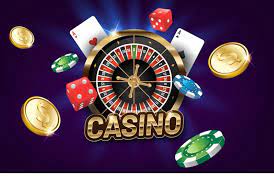Casinos have long been a symbol of excitement, risk mesin slot, and reward. From the opulent gaming halls of Monte Carlo to the dazzling lights of Las Vegas, these establishments have captivated the imaginations of millions. This article delves into the history, cultural significance, economic impact, and modern transformations of casinos, shedding light on their enduring allure and complex role in society.
A Historical Perspective
The concept of gambling dates back to ancient civilizations. Evidence of gambling activities has been found in Mesopotamia, ancient China, and Rome. However, the first official casino, the Ridotto, was established in Venice, Italy, in 1638. The Ridotto was a government-sanctioned venue where people could gamble in a regulated environment, laying the groundwork for the modern casino industry.
In the 19th century, casinos began to flourish in Europe, particularly in France and Monaco. The Casino de Monte-Carlo, opened in 1863, became an iconic destination for the elite, further solidifying the casino as a luxurious and glamorous setting. Across the Atlantic, gambling was popular in the saloons of the American frontier, but it wasn’t until the 20th century that the United States would become the global epicenter of casino gaming.
The Rise of Las Vegas
Las Vegas, Nevada, is synonymous with the casino industry. The city’s transformation from a small desert town to a bustling hub of entertainment began in the 1940s with the opening of the El Rancho Vegas. This was followed by a surge of development on what is now known as the Las Vegas Strip. Visionaries like Bugsy Siegel and Howard Hughes contributed to the city’s growth, building lavish resorts that combined gambling with luxury accommodations, fine dining, and live entertainment.



